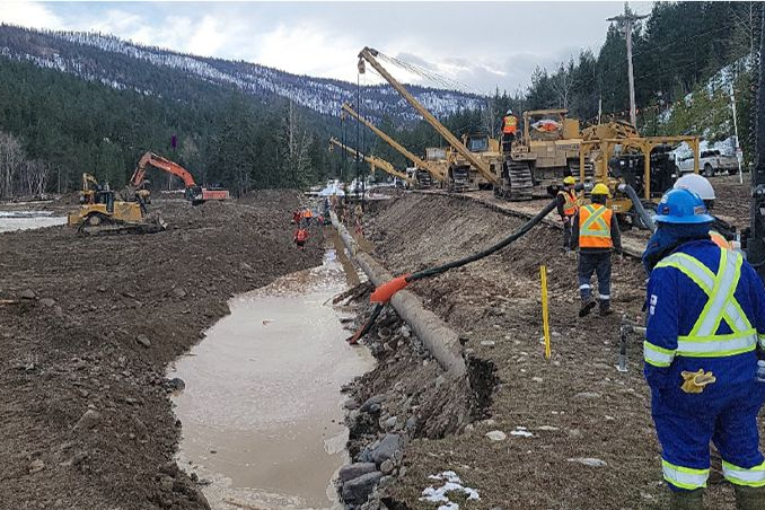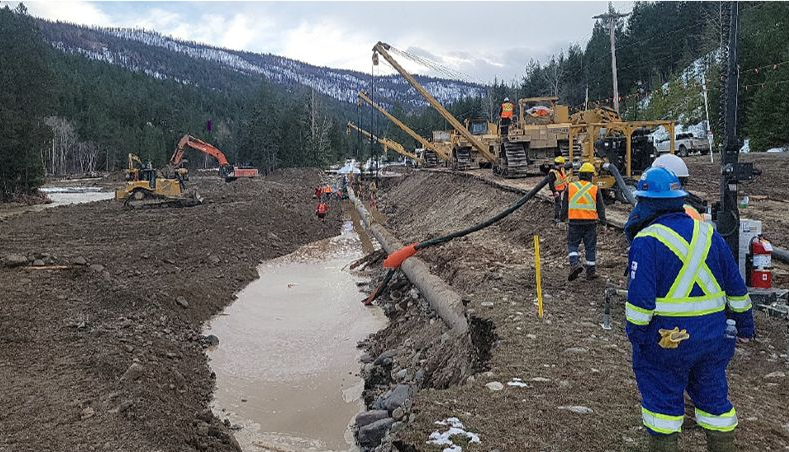

The cost of the Canadian government-owned Trans Mountain pipeline expansion has increased by 70% to C$21.4 billion ($16.79 billion) due to the impact of COVID-19 and extreme weather in British Columbia, Trans Mountain Corp said on Friday.
The company said it expects to finish the expansion in the third quarter of 2023, nine months later than previously scheduled. The previous cost estimate, made in February 2020, was C$12.6 billion.
Once completed, the Trans Mountain Expansion (TMX) will nearly triple the capacity of an existing oil pipeline running from Alberta to the Pacific Coast to 890,000 barrels per day.
But since its conception the project has been beset by regulatory delays and fierce opposition from indigenous peoples and environmentalists. In 2018 the Canadian government bought it to help ensure it gets finished.
“I want to assure Canadians that there will be no additional public money invested in Trans Mountain Corp,” Canadian Finance Minister Chrystia Freeland said following the company’s announcement.
Freeland said Trans Mountain Corp will instead secure the necessary funding with third-party financing, with public debt markets or financial institutions.
The government has engaged BMO Capital Markets and TD Securities to provide financial advice.
“Their analyses confirm that public financing for the project is a feasible option that can be implemented swiftly. They have also confirmed that the project remains commercially viable,” Freeland added.
Freeland reiterated that the Canadian government did not plan to be the long-term owner of the pipeline, and would launch a sale process in due course.
Trans Mountain said Chief Executive Ian Anderson will retire from the company and its board, effective April 1.
The company blamed the delays and increased costs on the COVID-19 pandemic and devastating flooding in British Columbia in November that washed out roads across the south of the province and temporarily shut down the existing pipeline.
“The progress we have made over the past two years is remarkable when you consider the unforeseen challenges we have faced including the global pandemic, wildfires and flooding,” Anderson said in a statement.
You can read more of the news on source



